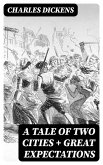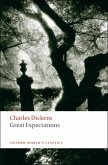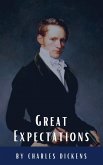Charles Dickens's "Great Expectations" is a seminal work that delves into the themes of social class, ambition, and moral development in Victorian England. The novel follows the life of Pip, an orphaned boy who aspires to elevate himself from his humble beginnings, exploring the intricacies of personal and societal expectations. Dickens employs a rich, descriptive style characterized by his keen observations and complex characterizations, ensuring that each character serves as a representation of broader social issues. This bildungsroman captures the turbulent journey of self-discovery, framed within the constraints of a rigid social hierarchy and imbued with Dickens's trademark wit and pathos. Dickens, born into modest circumstances, experienced firsthand the stark realities of poverty and social injustice, which heavily influenced his literary voice. His early experiences working in a factory, followed by his rise as one of the most celebrated authors of his time, provided him with a nuanced understanding of human nature and societal structures. "Great Expectations," published in 1860, reflects Dickens's mastery in portraying the struggles of the individual against a backdrop of societal challenges, allowing readers to empathize with Pip's journey. I highly recommend "Great Expectations" to those seeking not only a compelling narrative but also a profound exploration of ambition and morality. Dickens's timeless tale resonates with readers across generations, inviting them to reflect on their own aspirations and ethical dilemmas, thus making it an essential reading for anyone interested in the complexities of human existence.
Dieser Download kann aus rechtlichen Gründen nur mit Rechnungsadresse in A, B, BG, CY, CZ, D, DK, EW, FIN, F, GR, H, IRL, I, LT, L, LR, M, NL, PL, P, R, S, SLO, SK ausgeliefert werden.









